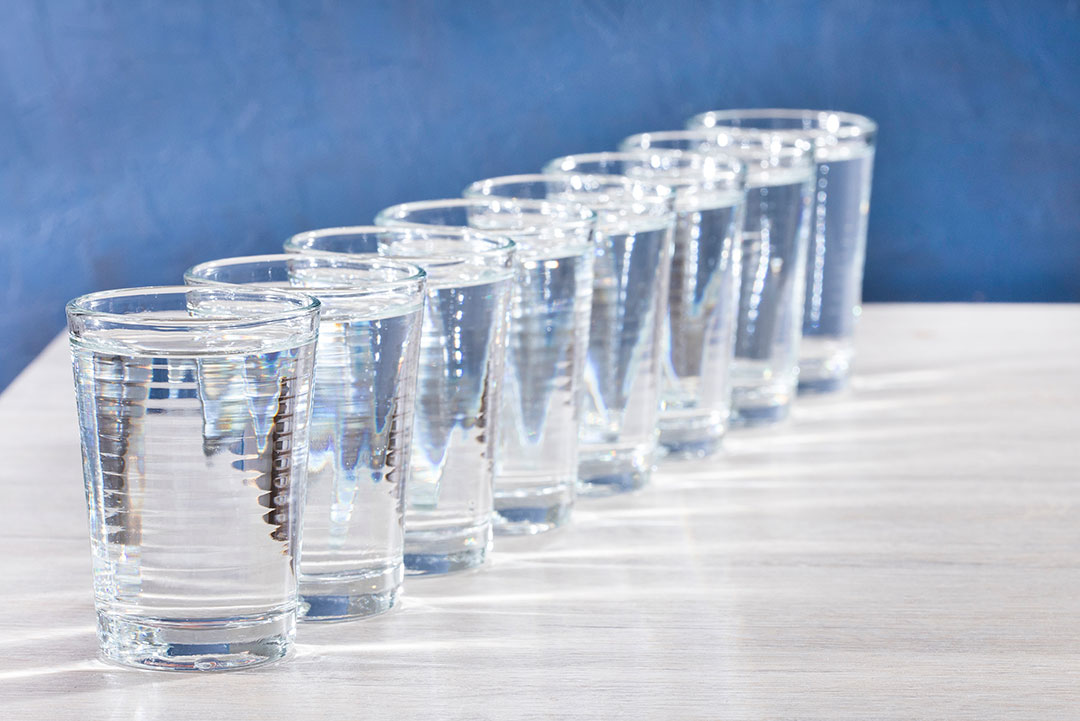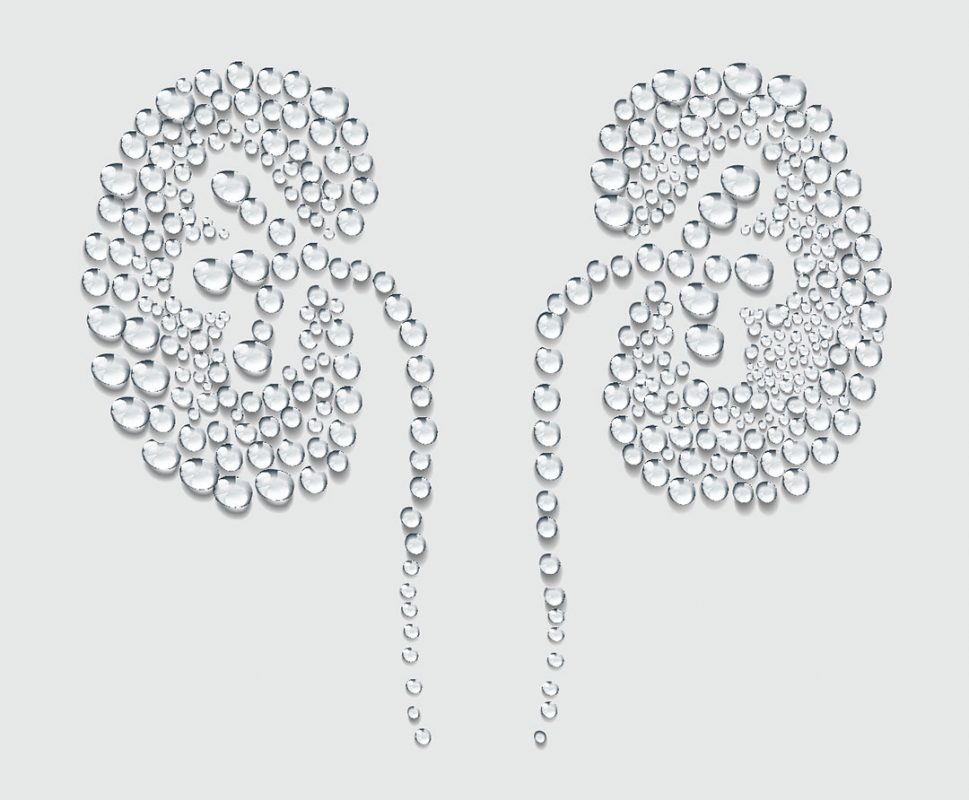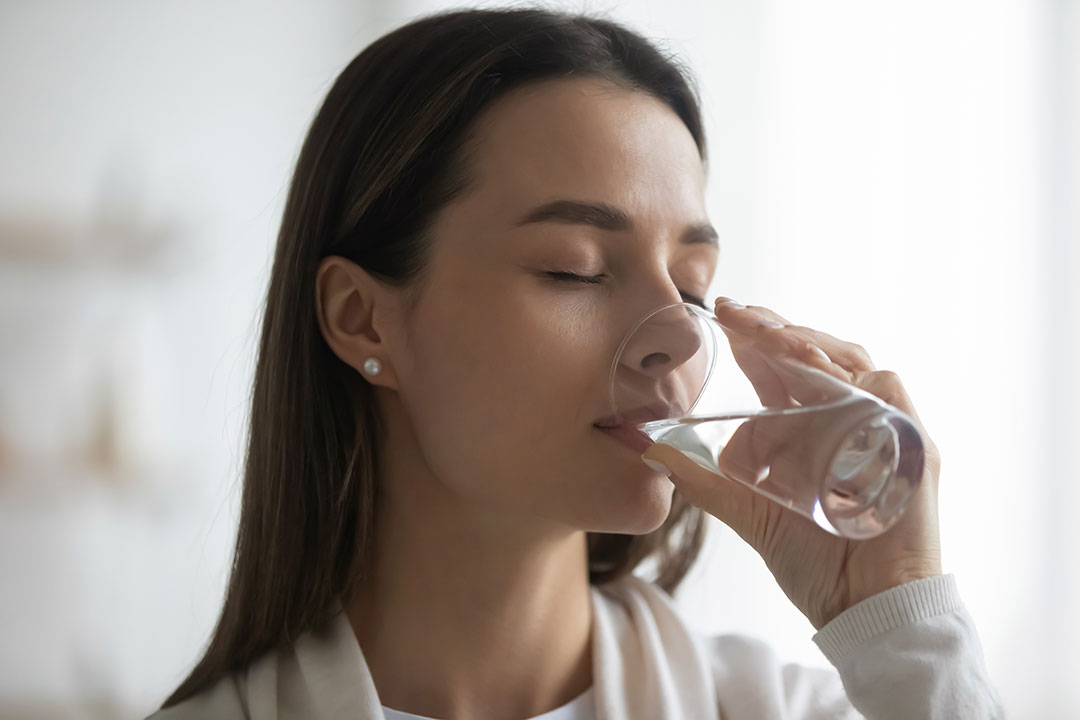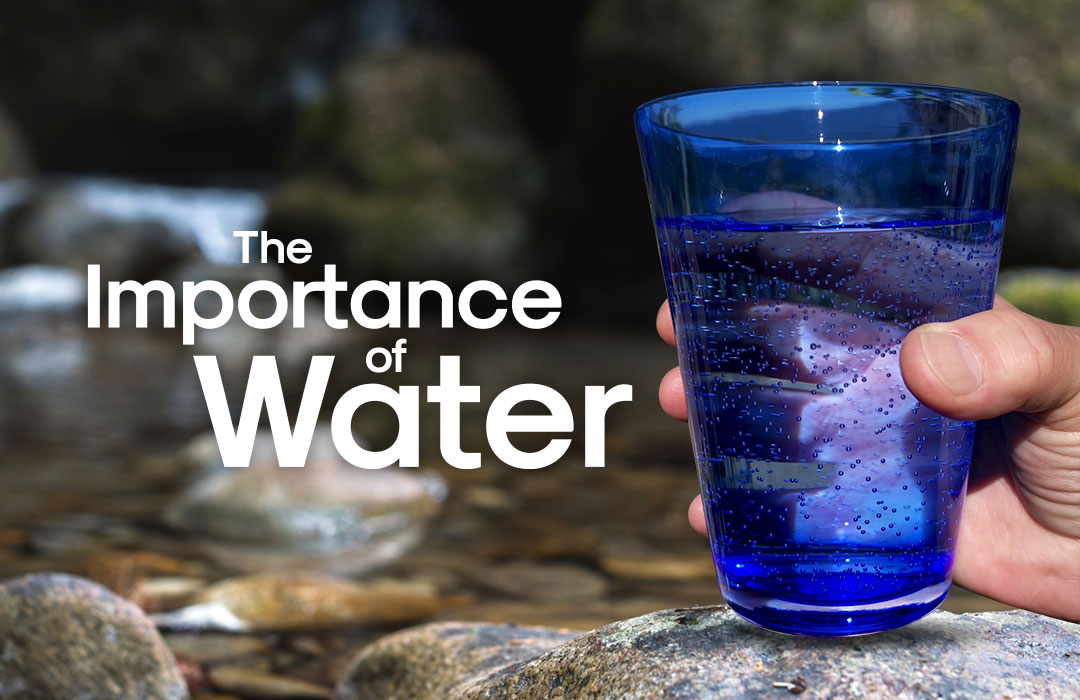Alive Water
The Importance of Water
W. H. Auden beautifully quoted the importance of water – “Thousands have lived without love, not one without water.”
Water is an essential substance for humans, animals, and plant life on earth. We need water to hydrate ourselves, cook food, clean our bodies, clothes, and homes. We also need it for farming and to keep our plants alive in parks and gardens. According to research, on average, a person needs around 150-250 gallons of water daily.
For humans, the importance of water begins from its conception in the mother’s womb. Pregnant women need more water intake than the average person because they need to form a fluid in the womb, called amniotic fluid.
The U.S. National Academies of Sciences, Engineering, and Medicine suggests that for an average person, an adequate daily fluid intake is around 15.5 cups (3.7 liters) a day for men and 11.5 cups (2.7 liters) for women.
However, despite the importance of water for human health, around 784 million people around the world are living without basic water access. This makes double the population of the United States. More and more people are dying from drinking unsafe water than violence and war.
According to the World Health Organization’s estimate, by 2025, almost half of the world’s population will be living in areas with water shortages. This situation demands introducing techniques to make water clean and healthy, drinking, and making investments to save water resources for human health and safety.

Importance of Water in Human Life
Let’s take an in-depth look at the importance of water in human life and how consuming less water can affect our health.
Water is the Key Element of Food Chain
Living beings are dependent on each other for their food and survival. A food chain is a series of organisms, each relies on the next food source. This is how we exist on earth. It is important to understand that Water forms the basis of the food chain.
The chain begins with plants (producers) and plants require carbon dioxide and water in the presence of sunlight to form glucose. Once plants are ready, they are food for animals and humans. At every single stage of the food chain, water plays a significant role. If water is not there, this chain will collapse.
Water is the Main Component of the Human Body
The human body is 60-70% water and the functions of our body are dependent on our body fluids. From the cellular level to running the function of various body systems, water is the medium. Water’s role as a universal solvent enables cells to use and transport substances such as oxygen and nutrients. Red blood cells have the capability to bind with oxygen and transport it to all the body cells with the help of plasma.
The extreme level of dehydration or water due to any illness may put anyone in a life-threatening situation.
Water and Metabolism
Water acts as the medium for most of the chemical reactions happening in our bodies, in particular, those metabolic reactions involving energy production. Without water, the body cannot properly digest stored fat or carbohydrates. As Water participates in the biochemical breakdown of our food, it helps to manage our body weight. Drinking water also helps to stay energetic during exercise and improves metabolic activities.
Our Lungs and Water
Our lungs consist of 83%-85% of water, according to H.H. Mitchell. For the purpose of inhaling oxygen and exhaling carbon dioxide, our lungs need to be moisturized continuously.
Experts at Rush University Medical Center emphasize the importance of staying hydrated to keep your lungs healthy just like the rest of your body.
An expert, Ryan says “Staying well hydrated by taking in fluids throughout the day helps keep the mucosal linings in the lungs thin. This thinner lining helps the lungs function better.”
Digestive System and Water
Just like its many other benefits for the human body, drinking water also aids the process of digestion at every step.
Water is the key component of our saliva which has many functions. It is responsible for moistening our food and also acts as a source to break down fats and carbohydrates when we chew. Then, the watery gastric juices of the stomach help digest food.
Again, water is needed to produce the mucus coated inside our stomach. It helps our stomach not get adversely affected by the highly acidic digestive juices.
When food reaches the small intestine, watery secretions from the intestinal lining, pancreas, and liver help the absorption of amino acids, fatty acids, and individual sugar molecules.
It is therefore extremely important to stay well hydrated and improve your fluid intake. If you don’t consume enough water, your digestive system will soak water from your food waste which may lead to constipation. Increasing water content can also help you stimulate bowel movements.
Kidneys and Water
Water is life for our kidneys. These two organs help us excrete waste material from our bodies and return the important nutrients and minerals into our bloodstream. If we are not drinking enough water, it can cause chronic dehydration. This may lead to the production of urine with a higher concentration of minerals and waste products.
This accumulation of dirt can lead to forming crystals and kidney stones and can adversely affect the functioning of our kidneys. Research also suggests that drinking plain water can have a protective effect on our kidney function.

Also, if you look at some severe urinary tract infections, they can get more severe due to lack of water. Medical specialists suggest you increase your water intake or drink cranberry juices because it will help dilute urine and allow bacteria to leave your body before causing an infection. If a person is unable to control UTI in its initial stage, it may harm your kidneys and lead to chronic kidney diseases.
Skin and Water
Drinking sufficient amounts of water is an open secret of beautiful and glowing skin. This helps your skin maintain its elasticity and avoid wrinkles. Also, when drinking enough water keeps your other body’s functions on track, you will result in a healthy glow on your skin.
A 2007 research in the International Journal of Cosmetic Science studied the effect of long-term water intake on skin health. The results showed that drinking 2.25 liters which make around 9.5 cups of water every day for one month can alter skin density and thickness.
Another study from the University of Missouri-Columbia found that drinking 500 milliliters of water that is around two cups can increase blood flow to the skin. This is because fluid intake improves your immune system and promotes natural detoxification which is also a cure against acne.
Externally you can experience that splashing water can help you open and close your pores and keeps your skin fresh and clean.
Human Brain and Water
Nearly 80% of our brain is made up of water and that’s why the brain depends on water for its optimal functioning.
As a result of persistent dehydration, several memory-related problems such as brain fog, fatigue, lack of focus and concentration, insomnia, or headaches can occur.
Just take the case of headache, water is so important that the brain can temporarily shrink from fluid loss. This can cause the brain to start pulling away from the skull, causing pain and dehydration. Once rehydrated, the brain can return to its normal state which helps in relieving the headache.
Also, regular dehydration may also lead to several other brain-related diseases which involve thinking and reasoning. Staying hydrated helps you protect the spinal cord and other sensitive tissues.

Human Heart and Water
Your heart is constantly working, pumping about 2,000 gallons of blood a day. By staying hydrated you are helping your heart do its job. A hydrated heart is able to pump blood more easily, allowing the muscles in your body to work even better.
Also, as prevention for cardiovascular diseases, water is found to be an effective measure. According to Dr. Mark Reeves, drinking at least five glasses of water every day lowers your risk for heart disease.
Eyes and Water
Eyes need proper lubrication to keep working and lubrication needs sufficient water. This water helps our eyes stay moist, removes dirt, bacteria from entering our eyes.
If you are not well hydrated, there is not enough water to go around and it may cause dry eyes. Dry eyes can affect us badly and it can cause excessive burning and irritation. You may even have to face blurred vision, trouble wearing lenses or excessive mucus. An adequate amount of water helps you preserve the health, shine, and beauty of your eyes.
Water is the Main Ingredient
We need water in most of the foods that we cook, especially when it comes to softening our delicious meats, legumes, and grains. We also need it to make drinks and beverages both at our home or processed at industries. Tea, coffee, and juices are a significant part of our everyday life and that also depends on water.
However, we must be taking water in its safest form before we even feel thirsty. According to the Mayo Clinic, when you’re thirsty, you could already be dehydrated, having lost as much as 1 to 2 percent of your body’s water content.
Why is Water Important for the Environment?
All the physical, chemical, biotic (living factors like animals, plants, etc), or abiotic components (nonliving factors like water, soil, air, etc) surrounding us make up our environment. Water is one of the most important components of this environment. In fact, environmental quality depends on maintaining water quality and quantity.
Healthy and clean rivers bring life to societies, aquatic life, our communities, and industries. While doing this, they also nourish entire ecosystems and provide important habitats for plants and animals coming in their way. Water makes places more liveable and connects us with nature.
Better quality of water, sanitation, and hygiene can help to save the lives of 297,000 children under the age of 5 each year. This is the scarcity of water, lack of sanitation, and hygiene access that can contribute to diarrhea, the third leading cause of childhood death in the world.
That’s why it’s important to take measures for preserving this water from contamination and wastage both at the individual, communities, and national levels.
How Can You Help Conserve and Preserve Water?
We must also know that the quality of water matters for life. Well-filtered water with all its natural properties can benefit our minds and bodies.
We can’t afford to lose this precious resource. According to the World Economic Forum held in January 2020, the water crisis is the number 5 global risk in terms of impact on society. Therefore we need to strategize conserving and preserving water.
Some techniques to conserve water at home is
- Check your toilet and kitchens for any leakage.
- Take shorter but healthier showers.
- Turn off the taps when you are brushing or shaving
- Water your lawn wisely
- Don’t waste much water in the laundry
At the national level, this life-giving resource should be saved for uncertain times. We need to conserve water by
- Protection of water from Pollution
- Renovation of Traditional Water Sources
- Use of Modern Irrigation Methods that
Also, if water has lost its original form due to any natural or man-made treatments, we must be able to bring it in its purest form by the use of technology. For example, water treated with The Vortex Water Revitalizer™ can help you reap the true benefits of this blessing. Due to proven results and an environmentally sustainable vision, this product, The Vortex Water Revitalizer™ is rapidly being supplied to over 50 countries.

What Does The Vortex Water Revitalizer™ Do?
The Vortex Water Revitalizer™ has a positive effect on one’s overall health and well-being. Moreover, it’s an environmentally friendly product with zero emissions. Once installed, you can feel a major improvement in the way you taste and experience the water.
With The Vortex Water Revitalizer™, your experience of drinking water will become much more enjoyable because revitalized water helps your body cells absorb nutrients in a more effective manner. Your gardens and plants will thrive because the revitalized water resumes the natural properties of water.
Conclusion
There is no life without water and it is the most precious gift of nature on earth. There is no second opinion to the fact that water is such a liquid that can help boost your mood, improve all your bodily functions, and get rid of excess toxins.
If you want to stay healthy within budget, include plain and clean water in your daily life. Consider water consumption just as important as food and exercise. Make a schedule for your water intake.



Related Blogs
What Are The Different Types of Water?
The genius of his time, Leonardo Da Vinci, rightfully noted – “Water is the driving [...]
2 Comments
Jul
What is Structured Water?
The term “Structured Water” refers to the water when its molecules are structured to form [...]
4 Comments
Aug
Transformative Power of the Vortex Water Revitalizer
We are ecstatic to share another glowing testimonial from one of our delighted customers – [...]
Dec
Discover Water Like Never Before: Eric’s Feel-Good Story
Let’s face it, the marketplace is a jungle and finding products that don’t just make [...]
Feb
The Pioneering Revolution in Water Treatment: An Insider’s Experience
Today, we want to share a remarkable review from one of our valued customers, Mary [...]
Jan
Viktor Schauberger Water Vortexer: The Evolution of Water Treatment
Every business has a story to tell – the tale of its inception and the [...]
3 Comments
Jun
Water Experiment By Dr. Masaru Emoto
Dr. Emoto Believed, “Water is the mirror that can show us what we cannot see. [...]
15 Comments
Jul
How Do You Clean Structured Water Filters?
Structured water has become a buzzword in the water lover and health fanatics space. Many [...]
5 Comments
Sep